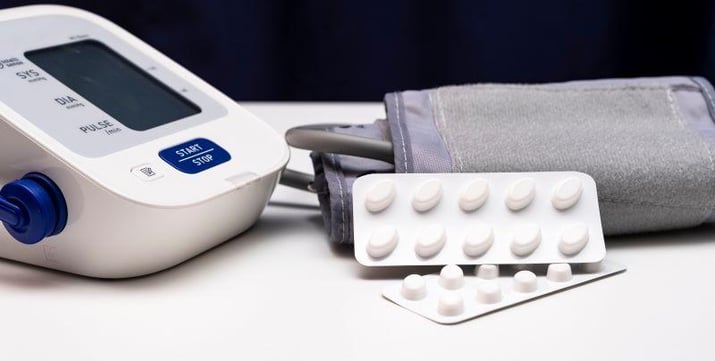Phone Coaching, Home Monitoring Do Not Lead to Significant Change in Blood Pressure

WEDNESDAY, Feb. 8, 2023 (HealthDay News) -- Telephone coaching and blood pressure (BP) self-monitoring do not result in significant BP changes versus usual care, according to a study published online Feb. 3 in JAMA Network Open.
Kara K. Hoppe, D.O., from the University of Wisconsin in Madison, and colleagues evaluated the effectiveness of a telephone coaching and BP self-monitoring intervention versus usual care among young adults with uncontrolled hypertension. The analysis included 316 randomly assigned participants (median age, 35 years; 159 to a control group and 157 to an intervention group). The My Hypertension Education and Reaching Target (MyHEART) intervention consisted of telephone coaching every two weeks for six months and instructions for home BP monitoring.
The researchers found that while there was no significant difference between the groups for mean 24-hour ambulatory systolic or diastolic BP or clinic systolic or diastolic BP at six or 12 months, there was appreciable clinical reduction in BP in both study groups (e.g., mean change in systolic BP in intervention group at six months, −4.19 mm Hg). There was no difference observed between the groups for hypertension control. The intervention group showed a significant increase in home BP monitoring at follow-up (8.6 percent checked BP at home at least once a week at baseline versus 34.9 percent at 12 months). At six months, but not at 12 months, there was a significant increase in physical activity in the intervention group. Similarly, there was a significant reduction in mean sodium intake in the intervention group only at six months. There were no other significant dietary changes noted.
"In this study, intervention participants did not experience a significant difference in BP reduction when compared with control participants but did demonstrate behavior changes," the authors write.
Related Posts
Yoga May Cut Migraine Frequency
MONDAY, April 4, 2022 (HealthDay News) -- Yoga therapy may reduce the frequency...
Racial Disparities Seen in Suspected Child Abuse Cases
WEDNESDAY, Feb. 15, 2023 (HealthDay News) -- Black children with traumatic...
Could Tissue-Zapping Procedure Be Non-Antibiotic Option for Recurrent UTIs?
FRIDAY, Oct. 13, 2023 (HealthDay News) -- For some older women, recurring...
El acoso podría ayudar a provocar dolores de cabeza en los adolescentes
JUEVES, 3 de agosto de 2023 (HealthDay News) -- Su hijo, que es estudiante de...
